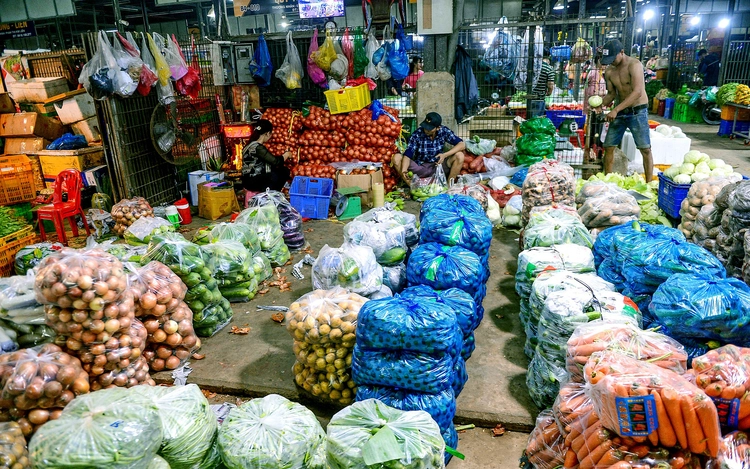
Plastic bags used for vegetables at Binh Dien wholesale market in Ho Chi Minh City. Photo: Quang Dinh / Tuoi Tre
Under a 2022 environmental decree, plastic bags smaller than 50x50 cm that are not biodegradable will be prohibited starting January 1, 2026.
A complete phase-out of single-use plastic products is expected by the end of 2030, except in special cases.
Vietnam produces around 1.8 million metric tons of plastic waste and packaging annually, according to the Ministry of Agriculture and Environment.
The looming ban has prompted a shift in consumer and market behavior, with prices for biodegradable bags rising and more businesses offering eco-friendly packaging.
At traditional markets in Ho Chi Minh City, sellers say prices for larger plastic bags have increased to VND30,000–40,000 (US$1.2–1.6) per kilogram.
Some convenience stores charge up to VND25,000 ($1) for certified biodegradable bags.
Store managers report that usage of eco-bags is now on par with traditional plastic bags.
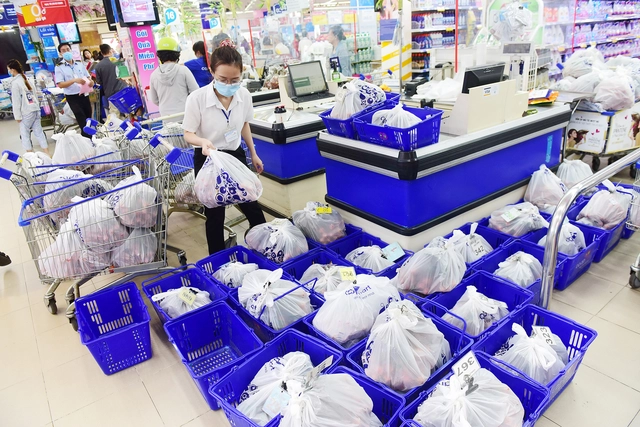
Biodegradable plastic bags at a supermarket in Ho Chi Minh City. Photo: Quang Dinh / Tuoi Tre
Retailers and markets have been transitioning gradually.
At Ben Thanh Market, all vendors reportedly stock biodegradable bags, although enforcement of their use remains inconsistent.
“There’s been a clear shift in consumer habits since the city began promoting green consumption,” said Le Minh Hiep, deputy market manager.
The new rules also expand manufacturer responsibility.
Producers and importers of plastic packaging are now required to recycle a mandated percentage or contribute to Vietnam’s Environmental Protection Fund.
Plastic recyclers are scaling up operations to meet growing demand.
Duy Tan Recycling expects to produce over 49,000 metric tons of recycled plastic in 2025, more than triple its 2020 output.
Half of that is expected to be consumed domestically, a notable shift from past years when most was exported.
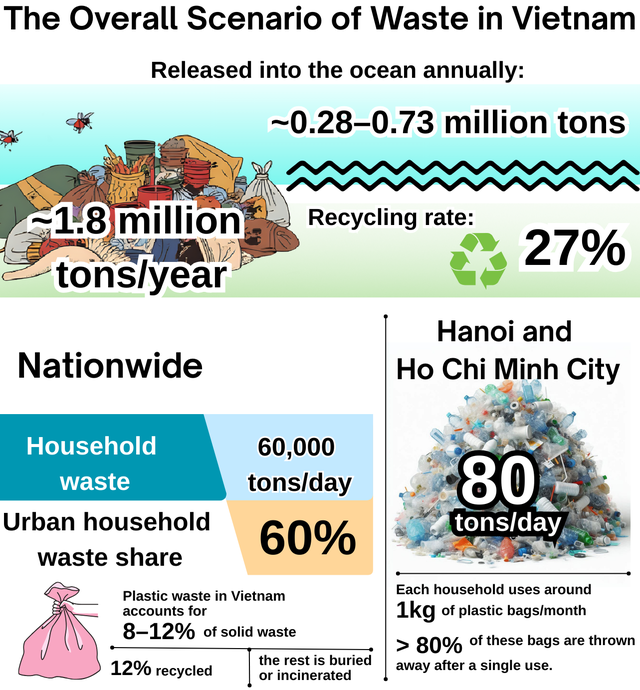
Source: Vietnamese Ministry of Agriculture and Environment
The trend is also reshaping packaging strategies in e-commerce.
“We’re investing in eco-design to reduce material waste and optimize logistics,” a packaging firm representative said, citing innovations such as heat-sealed box tops and minimal tape use.
The tourism industry is also aligning with the government’s green goals.
Starting 2026, hotels and resorts in Hanoi will be barred from using single-use plastics such as toothbrushes, shampoo bottles, and packaging.
Some properties have already adopted reusable or biodegradable alternatives, including bamboo and paper-based materials.
“As tourism rebounds, plastic waste must be addressed before it undercuts Vietnam’s appeal,” said Thuy Duong, a travel industry expert.
“Eliminating single-use plastics is a necessary move toward sustainable tourism.”
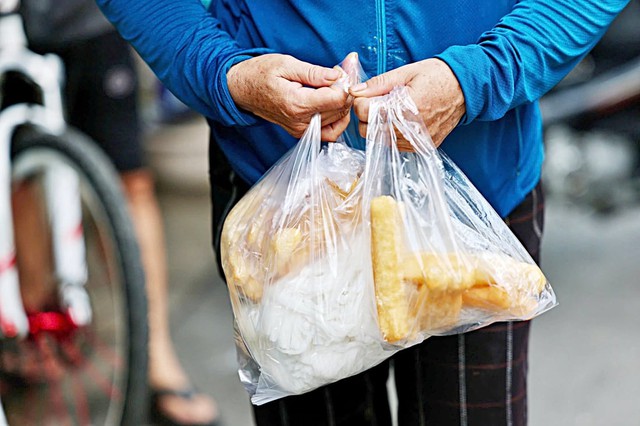
A shopper uses a plastic bag for food at Ngoc Ha market in Hanoi. Photo: Nguyen Khanh / Tuoi Tre
Ho Chi Minh City aims to cut non-biodegradable plastic bag usage at traditional markets by 70 percent this year.
Since 2022, most supermarkets and convenience stores in the city have already stopped offering such bags.
Environmental experts say success depends on reducing costs for eco-friendly packaging and enforcing penalties on banned products.
“Price remains a barrier to adoption,” said Dang Bui Khue of energy services provider TUV NORD Vietnam.
“Taxing polluting plastic and lowering costs for green alternatives will be key.”


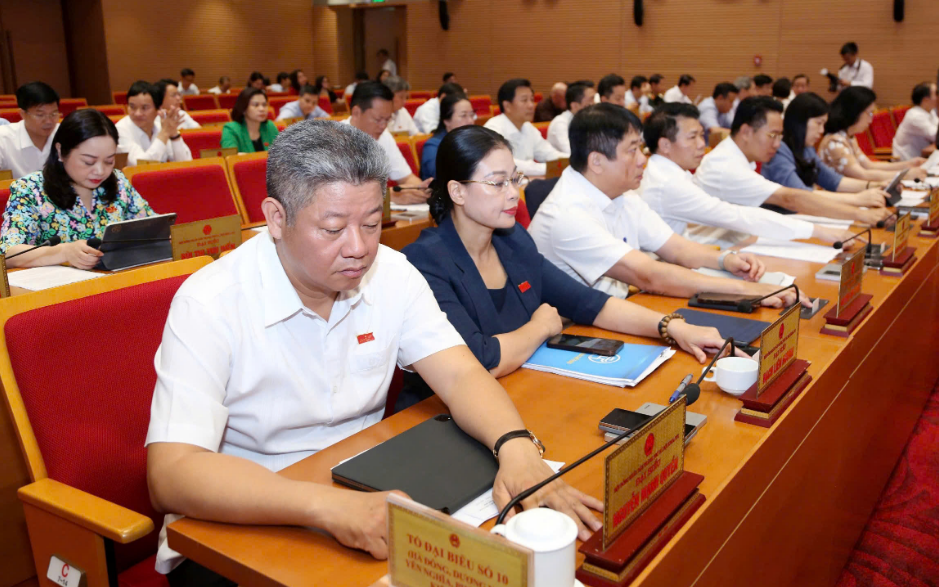
Max: 1500 characters
There are no comments yet. Be the first to comment.